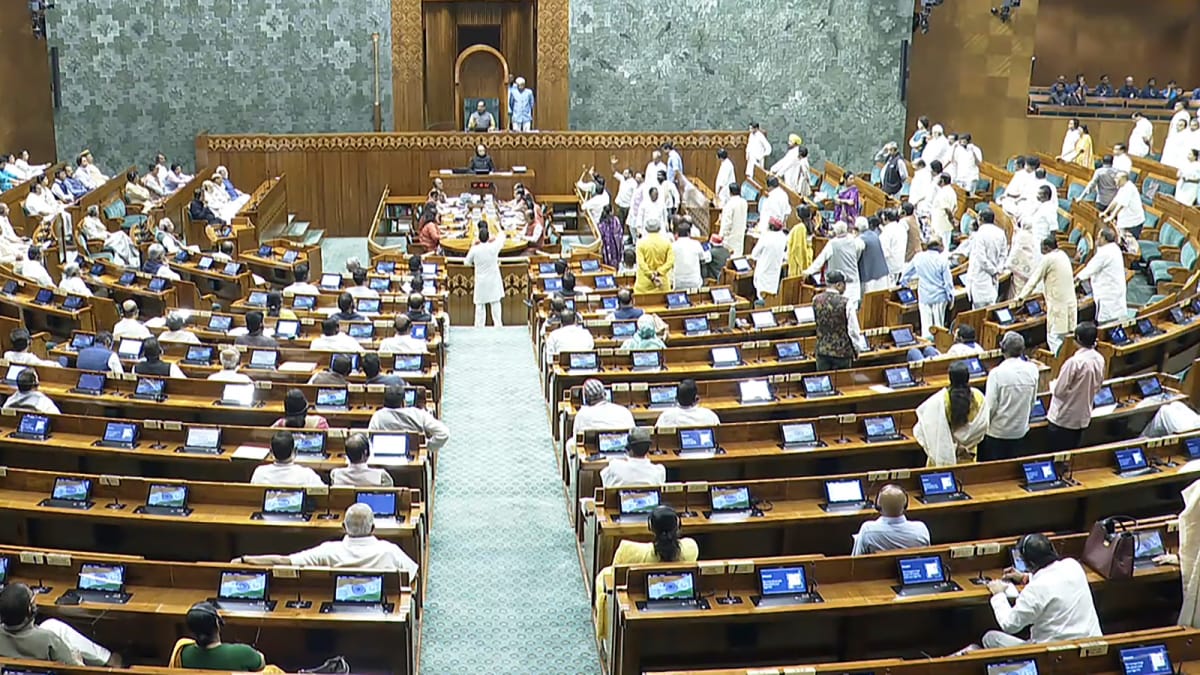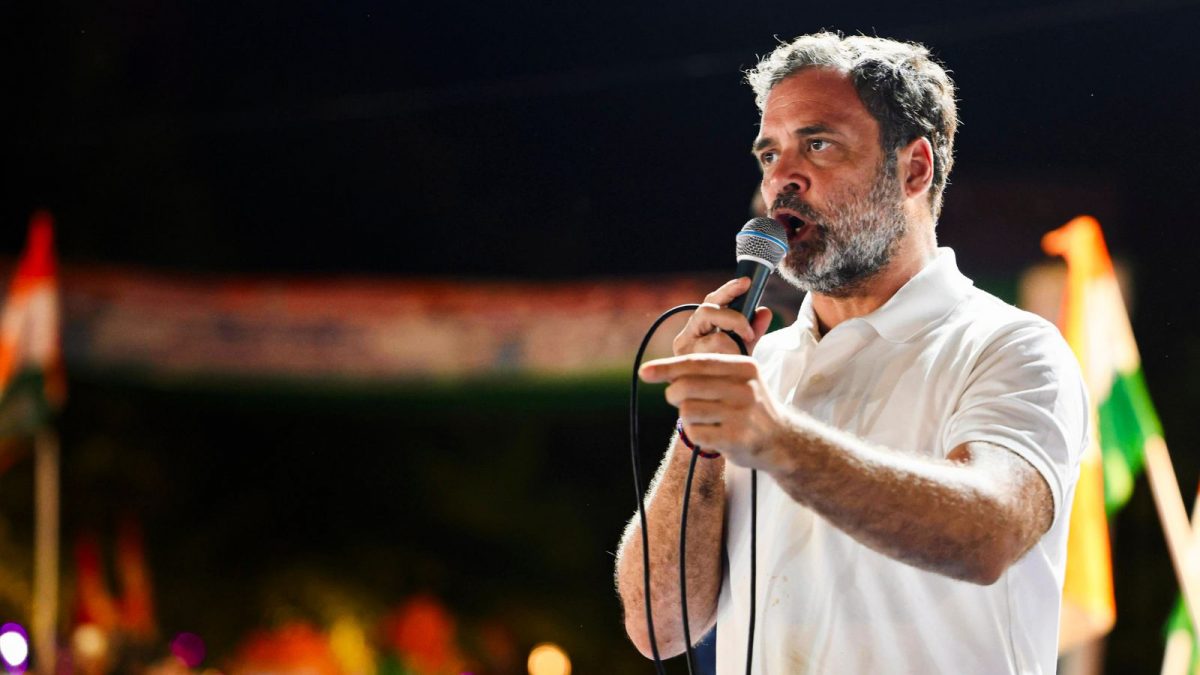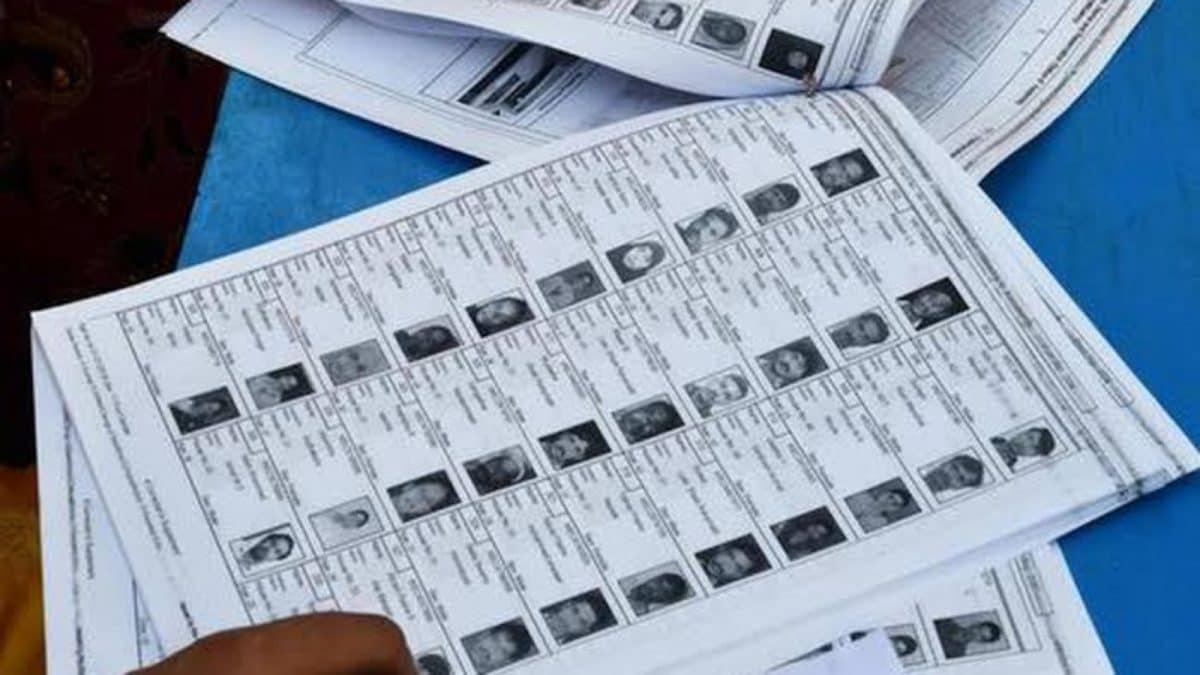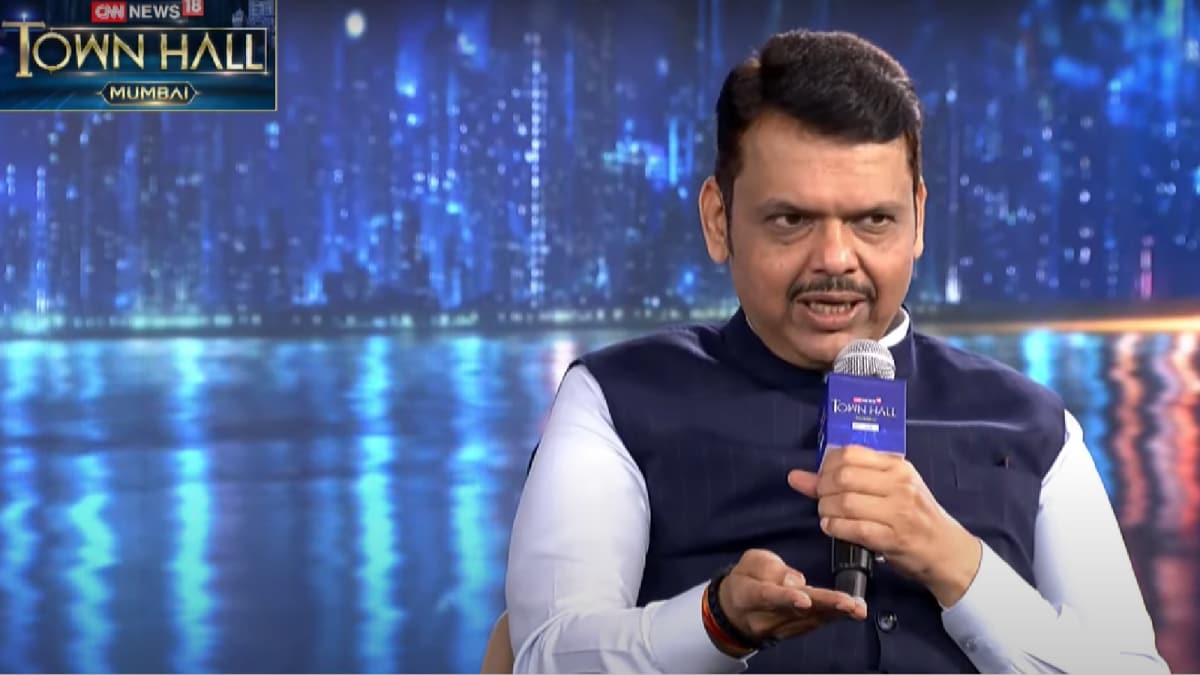Last Updated:
The trigger has been three bills – Constitution (130th Amendment) Bill, 2025, Govt of UTs (Amendment) Bill, 2025, Jammu and Kashmir Reorganisation (Amendment) Bill, 2025.

The situation escalated when a few opposition members went as far as tearing copies of the bills during proceedings. (File Image: PTI)
In an unprecedented turn of events, the ongoing standoff between the Modi government and the Opposition has deepened, reflecting a complete breakdown of trust in parliamentary functioning. The trigger has been the introduction of three constitutional and anti-corruption bills – Constitution (130th Amendment) Bill, 2025, Government of Union Territories (Amendment) Bill, 2025, Jammu and Kashmir Reorganisation (Amendment) Bill, 2025 – by Home Minister Amit Shah, which sparked uproar in Parliament. The situation escalated when a few opposition members went as far as tearing copies of the bills during proceedings. In response, the government referred the contentious bills to a Joint Parliamentary Committee (JPC).
However, this JPC itself has now become a flashpoint. With the INDIA bloc — the principal opposition alliance — largely refusing to participate, the committee is likely to be dominated by the ruling NDA along with a few regional allies like the YSRCP, BJD, and BRS. Key INDIA bloc members, including the TMC, SP, RJD, and AAP, have already announced a boycott. The Congress remains undecided, torn between internal opinions.
A section within Congress argues that participation is essential to formally record dissent in the JPC’s report, as such dissent notes often hold legal weight if the legislation is challenged in court. Others, however, caution that joining the JPC would upset INDIA bloc allies, who have firmly committed to staying away. TMC leaders, in particular, have criticised Congress for interventions during the bill’s introduction despite a collective decision to boycott the proceedings.
The risk of being portrayed as divided is another major concern. Congress fears that the BJP would leverage any perceived rift within the opposition to score political points.
This boycott is extraordinary in parliamentary history. Traditionally, even the fiercest opponents have engaged in JPCs, which are protected by constitutional norms and allow dissent to be officially recorded. While opposition parties argue that JPCs have become government-heavy and ineffective — often disregarding dissenting voices — the ruling party is likely to use the opposition’s absence as evidence of their disregard for constitutional processes.

Pallavi Ghosh has covered politics and Parliament for 15 years, and has reported extensively on Congress, UPA-I and UPA-II, and has now included the Finance Ministry and Niti Aayog in her reportage. She has als…Read More
Pallavi Ghosh has covered politics and Parliament for 15 years, and has reported extensively on Congress, UPA-I and UPA-II, and has now included the Finance Ministry and Niti Aayog in her reportage. She has als… Read More
Read More








